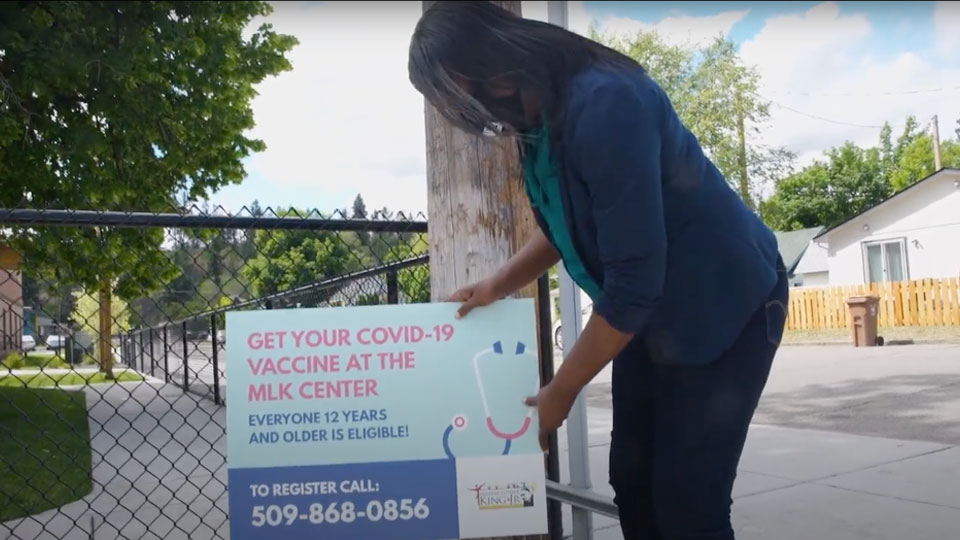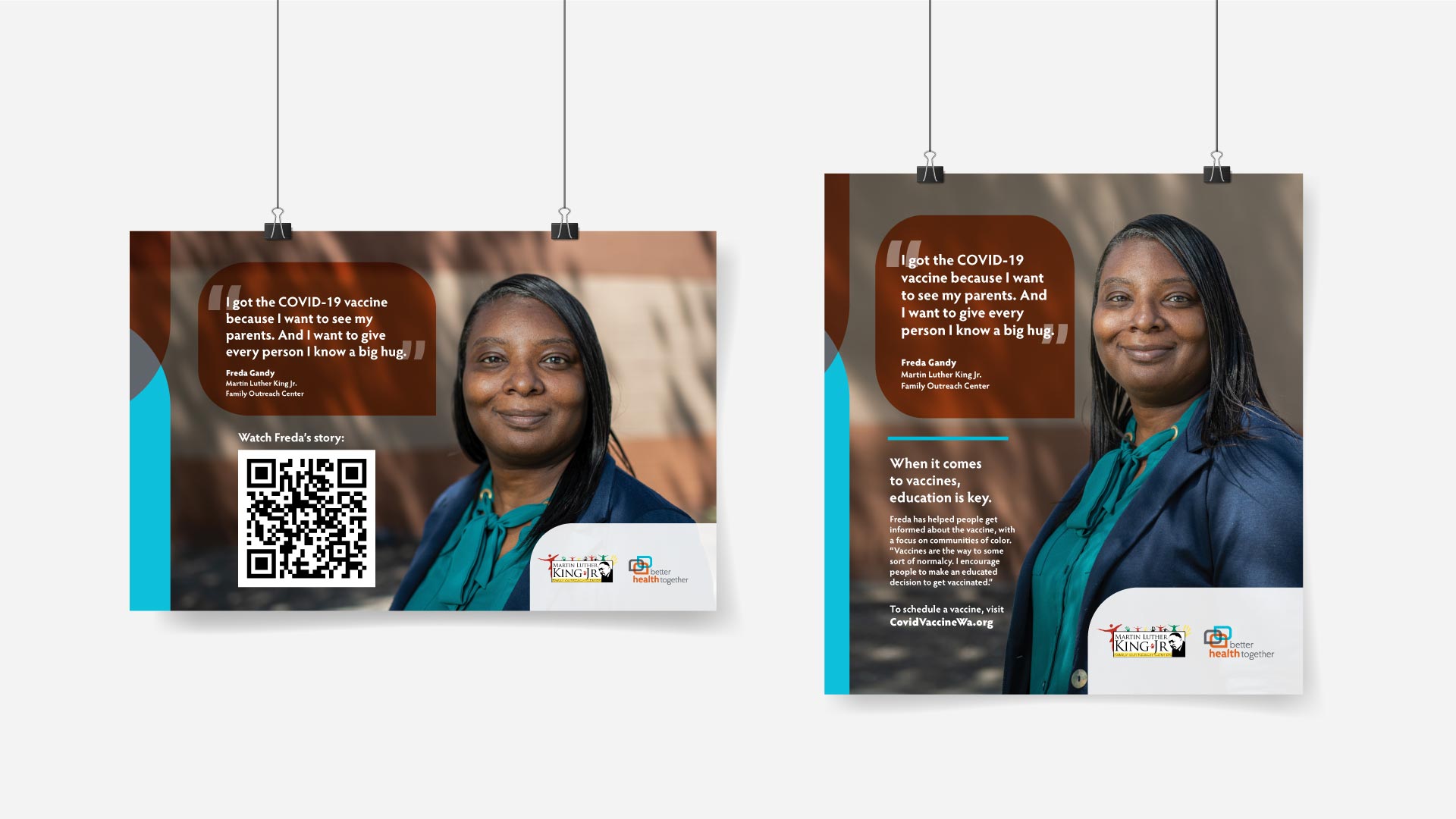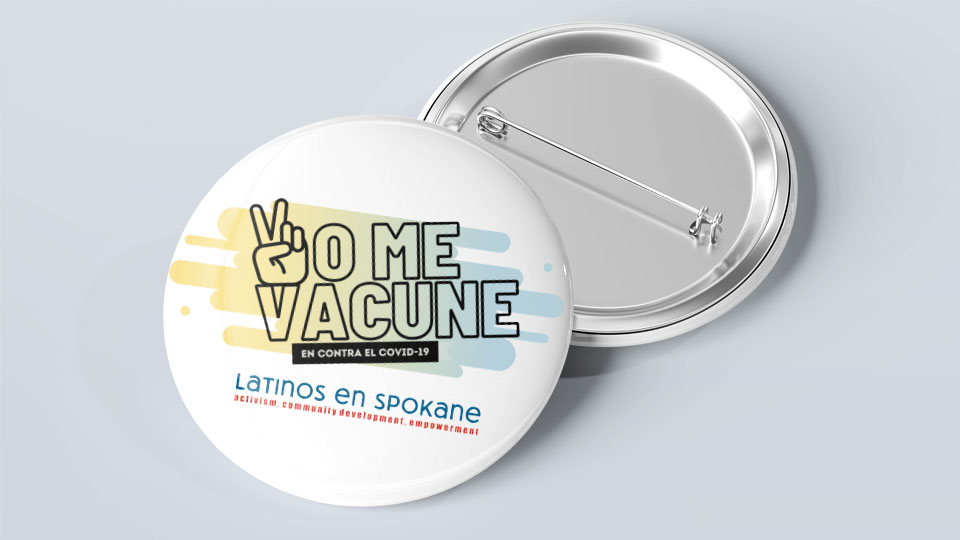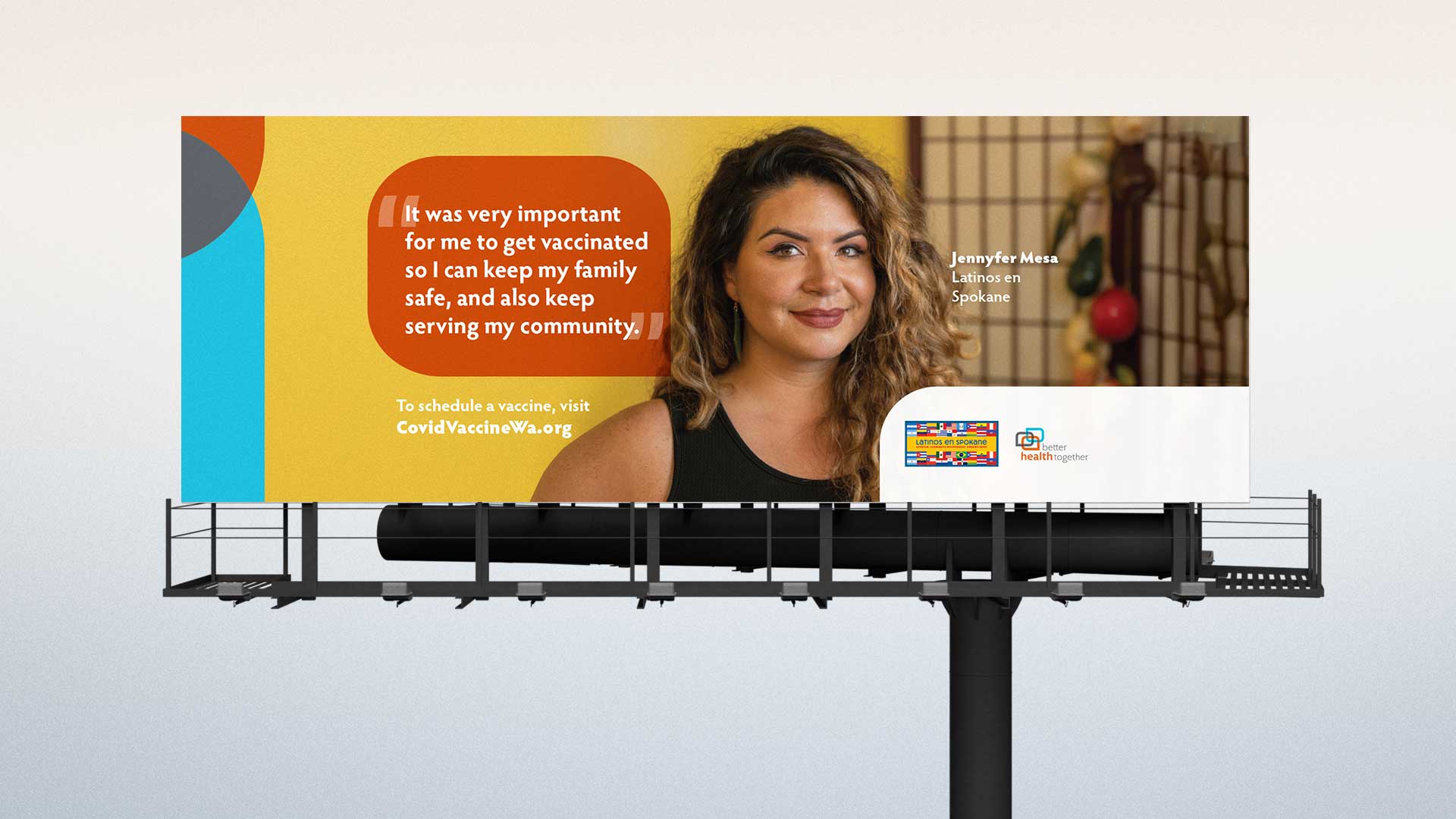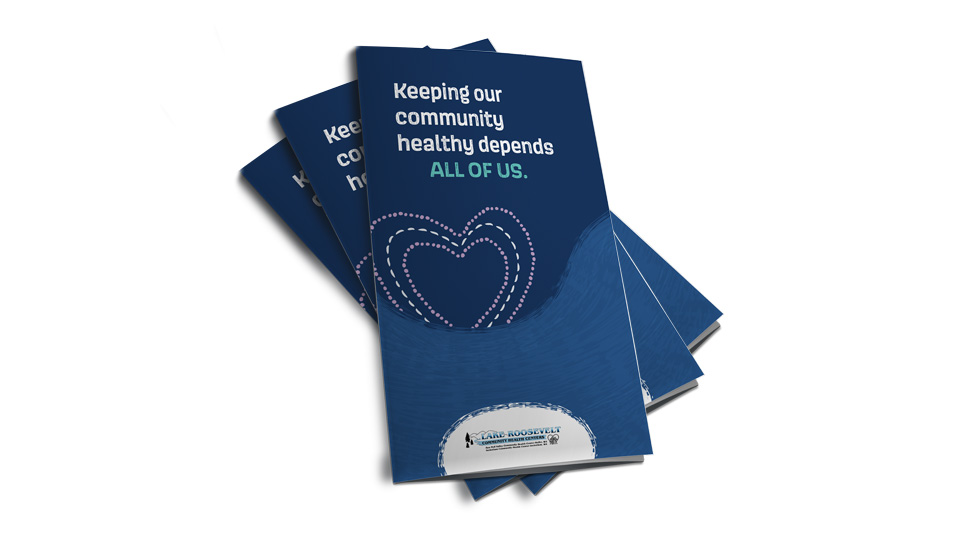Trusted Messenger COVID-19 Campaign
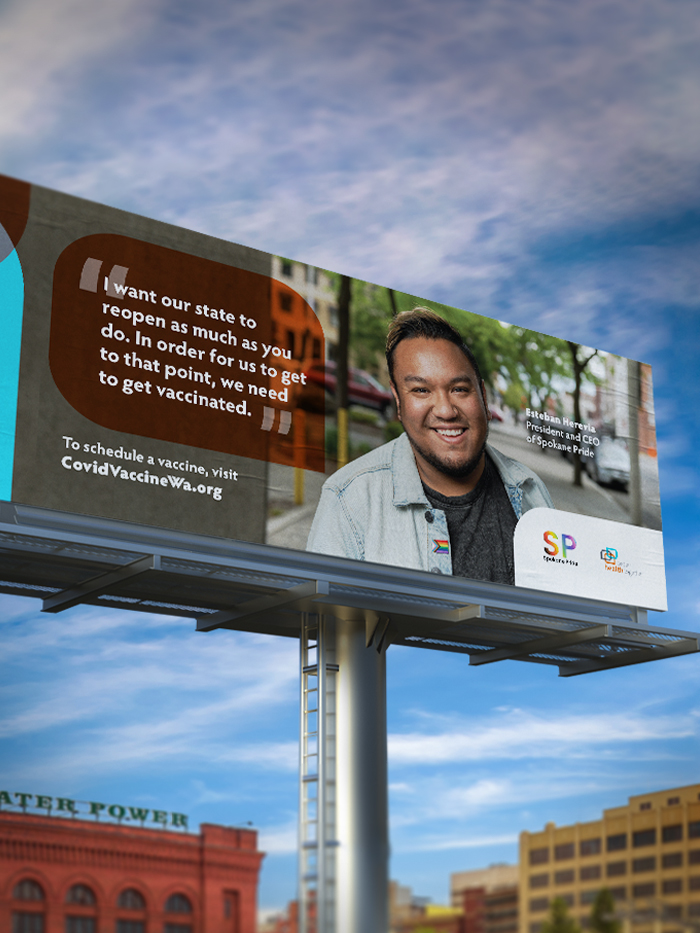
Just as the COVID-19 pandemic impacted each community in a different way, the distribution and acceptance of vaccines has not been uniform across communities. Better Health Together (BHT), a nonprofit dedicated to making health care in eastern Washington more equitable and holistic, wanted to address vaccine hesitancy among BIPOC, LGBTQ+ and rural communities. We worked with leaders from these communities who face many systemic and structural barriers to vaccine adoption, including historical trauma due to racism and other forms of oppression, distrust in government and misinformation.
BHT provided grant funding for community-based organizations (CBOs) to host vaccine clinics and community events, and DH co-created educational materials with these partners to promote their events and share important health information about COVID-19. We promoted the vaccine through a paid media buy that included community voices and stories from trusted messengers.
The challenge
Beyond combating general misinformation and fears surrounding the vaccine, the primary challenge of this campaign was that historically excluded communities had respective hesitancies toward the COVID-19 vaccine. Many Black/African American communities, for instance, have an inherent mistrust in the health care system due to historical trauma from centuries of harmful medical practices on Black bodies, and some Indigenous communities are wary of government-mandated programs due to a legacy of broken promises and ensuing distrust of governmental entities. Both issues originate from historical (and ongoing) racism, discrimination, and lack of culturally responsive care within the American health care system.
Many communities lacked materials and information in their own language. Some communities didn’t have easy access to technology or to transportation, making signing up for a vaccine or visiting a health care clinic challenging. Studies also found that people in rural communities were more likely to subscribe to anti-vaccine conspiracy theories.
All these systemic barriers and challenges needed to be addressed with impacted community members and leaders in ways that restored some semblance of trust and shifted power and control directly to the communities disproportionately impacted by COVID-19.
The strategy
Luckily, many CBOs within the region were already doing the work of communicating about COVID-19 with their communities and setting up vaccine clinics, creating safe spaces where community members could get the vaccine from providers with similar lived experiences. These clinics also allowed people to express their concerns about the vaccine and get their questions answered.
But many CBOs needed support. Both DH and BHT understood the importance of listening to the leaders in our region already doing the work, offering funding and communications support as needed, and then stepping aside — so trusted leaders could continue to do the work they were already doing in culturally responsive ways.
This was our ground game — to provide additional support to communities facing the most barriers in the region. BHT provided grant funding to CBOs so they could host events and vaccine clinics and build the capacity to conduct outreach and communicate with their community members. For partners who were interested, DH provided technical assistance to co-create materials about COVID-19 and the vaccine they could share with their communities.
We also wanted to normalize getting the vaccine across the region. We called this our air game. We worked with trusted messengers from partner CBOs to gather their vaccine story — what motivated them to get vaccinated and why they encouraged others to do the same. With these community-rooted and informed testimonials, we created broadcast spots, billboards, print ads, and social media content, and we placed a media buy that ran across eastern Washington, as well as in community-based media outlets.
Examples
Here are three community partners that worked closely with DH and BHT, not only dispersing culturally responsive materials and resources to their respective communities, but also sharing their stories as part of our campaign.
1. Martin Luther King Jr. Family Outreach Center
Located in the East Central neighborhood of Spokane and in operation since the early ’70s, the Martin Luther King Jr. Family Outreach Center has long been a hub for children and families, specifically in Spokane’s Black/African American community. In 2021, the organization hosted a neighborhood fair that provided family-friendly entertainment and served as a vaccination clinic and a site for information about the vaccine. The MLK Center also created colorful yard signs promoting the vaccine and featured a phone number that allowed people to easily register for vaccination appointments.
2. Latinos en Spokane
3. Lake Roosevelt Health Centers
Results
Over the course of this campaign, community partners hosted 46 vaccine clinics, resulting in more than 6,800 vaccinations to BIPOC, LGBTQ+ and rural community members. By the end of 2021, our region’s vaccine rates had dramatically increased. In Spokane County alone, over half of the population had received the vaccine.
%
vaccine clinics
%
vaccinations to BIPOC, LGBTQ+ AND RURAL COMMUNITY members
This campaign would not have been anywhere as successful as it was without the phenomenal, trusted messengers who have continued to dedicate their lives, lend their powerful voices, and make sacrifices on behalf of their communities.



